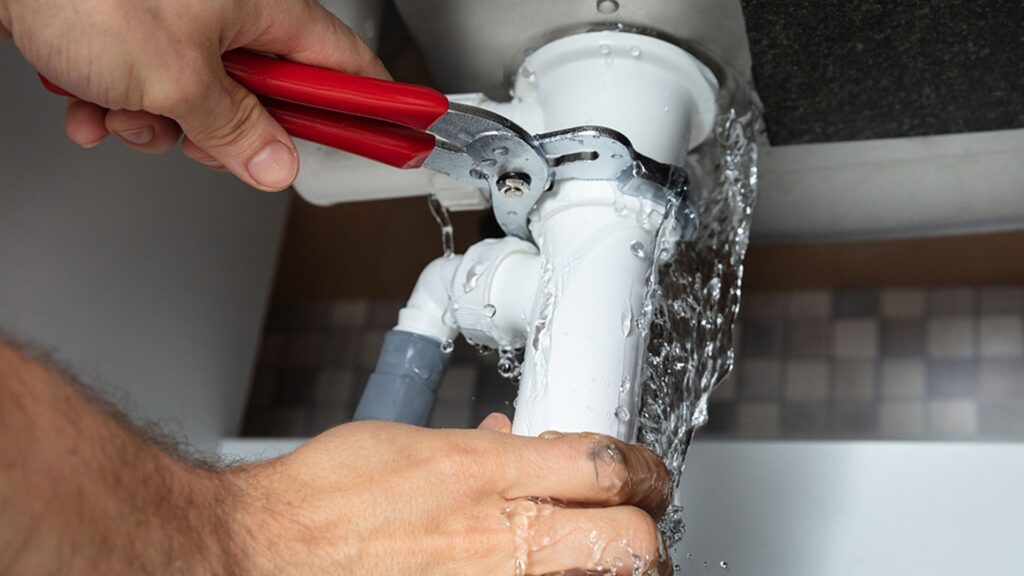Welcome to your go-to guide for understanding plumbing rates in NZ. Whether you’re dealing with a dripping tap, planning a bathroom renovation, or facing a plumbing emergency, knowing what to expect in terms of costs can save you time, stress, and money. Rates can vary depending on your location, the type of job, and even the time of day you call, so it’s important to be informed before you pick up the phone. In this post, you’ll learn how much plumbers typically charge across New Zealand, what factors influence the price, and how to make sure you’re getting fair value for the work done.
Plumbing rates in NZ typically range from $90 to $130 per hour for standard jobs and $150 to $250 per hour for emergency callouts. Costs can vary by region, job type, and time of service. Always ask for a detailed quote before booking.
Table of Contents
How Much Do Plumbers Charge In NZ?
When hiring a plumber in New Zealand, one of the first questions most people ask is, “How much will it cost?” Plumbing rates in NZ vary depending on the location, type of job, urgency, and the plumber’s experience. Knowing what to expect can help you budget properly and avoid surprises when the bill arrives.
Average Hourly Rates
For most standard plumbing jobs, you can expect to pay between $90 and $130 per hour. This covers general services such as fixing leaks, installing taps, and unclogging drains during regular business hours. If the job is straightforward and requires minimal parts, it may only take an hour or two.
Emergency Call-Out Rates
If you need help after hours, on weekends, or during public holidays, the rates can rise significantly. Emergency plumbing services usually cost between $150 and $250 per hour. These urgent services often involve issues like burst pipes, overflowing toilets, or no access to hot water, problems that can’t wait until the next day.
Call-Out Fees Versus Hourly Rates
Many plumbers charge a call-out fee, which typically ranges from $60 to $100. This fee covers the cost of traveling to your location and is usually charged in addition to the hourly rate. Some plumbers may waive the call-out fee if the job proceeds, while others include it in the final invoice. Always confirm this before booking.
Minimum Charge Policies
Plumbers often apply a minimum charge, even for short tasks. For example, if a job only takes 20 minutes, you may still be billed for a full hour. This is common in the industry and helps cover the time spent traveling, diagnosing the issue, and preparing tools.
Regional Price Differences
Where you live in New Zealand plays a big role in what you’ll pay. Rates in Auckland and Wellington tend to be higher due to higher demand and cost of living. In these areas, even a basic job could be on the upper end of the hourly rate range. On the other hand, plumbers in Christchurch or smaller towns often charge slightly less. In rural areas, travel fees can increase the total cost, even if the hourly rate is lower.
A quick job in Auckland might cost more than a longer one in a small town. Why? High overhead costs, traffic delays, and demand for tradespeople all contribute to higher prices in major cities.
If you’re unsure what a plumber might charge in your area, it’s always best to get a few quotes. Ask for a full breakdown of rates, call-out fees, and minimum charges so you can compare and make an informed decision.
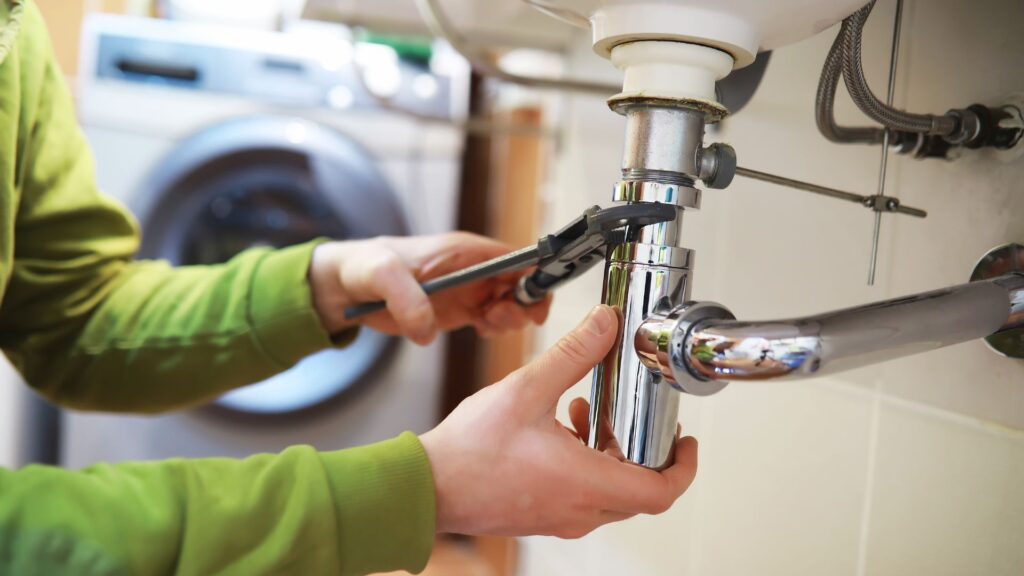
What Affects Plumbing Costs?
Plumbing costs in New Zealand can vary widely, and understanding the reasons behind those differences can help you make smarter decisions when hiring a plumber. It’s not just about how long the job takes, there are several factors that can drive the price up or down. Here’s what you should know before picking up the phone.
Type Of Service
The type of plumbing work needed is the biggest factor in determining cost. Simple repairs like fixing a leaking tap are usually straightforward and may take under an hour. A job like this could cost you around $120, including the call-out fee and labor.
On the other hand, more complex jobs such as installing a new hot water cylinder require more time, parts, and skill. This type of work can easily cost $1,500 or more, depending on the system you choose and how accessible the installation area is. Drain unblocking, pipe replacements, or full bathroom plumbing renovations also fall into the higher-price category because they take longer and involve more labor and materials.
Time Of Day Or Week
Timing also plays a key role in how much you’ll pay. Most plumbers charge standard rates during regular business hours, usually between 8 AM and 5 PM. But if you need help outside of those hours, say, on a weekend, public holiday, or in the middle of the night, you can expect emergency rates. These can jump to $150 to $250 per hour, depending on the urgency and time of service.
If your plumbing issue can wait until the next working day, doing so might save you a significant amount.
Materials Or Parts Needed
The cost of materials or replacement parts will also impact the final bill. Something simple like a new tap washer is cheap and easy to install. But if your job involves replacing broken pipes, upgrading fixtures, or installing a new valve, expect to pay for those parts on top of labor. Plumbers typically charge retail prices for materials, which may include a small markup.
Ask for an itemized quote to see how much is going toward materials so you can make an informed decision.
Experience Of The Plumber
Experience and certification matter. A licensed plumber with years of work under their belt may charge more per hour than an apprentice, but they’re also likely to finish the job faster and with fewer mistakes. For small jobs, using an apprentice may help you save, especially if they’re working under supervision. But for bigger projects or anything involving compliance certificates, it’s safer to go with a fully qualified professional.
Always check that the plumber is registered with the Plumbers, Gasfitters and Drainlayers Board (PGDB) in New Zealand. This ensures they meet the required standards and are allowed to do the work legally.
Travel Distance
If you live in a rural or remote part of New Zealand, travel costs may be added to your bill. Plumbers in urban areas like Auckland or Wellington may have multiple jobs in a day and shorter travel times. But in smaller towns or remote regions, plumbers may charge extra to cover the time and fuel used to get to your property. Some will include this in their call-out fee, while others charge per kilometer after a certain distance.
Ask in advance if travel charges apply, especially if you’re located more than 20–30 minutes from the plumber’s base.
Real-Life Examples
To put this into perspective:
- Fixing a leaking tap in a local home could cost around $120, including labor and minor parts.
- Replacing a hot water cylinder can cost upwards of $1,500, depending on the model, installation needs, and labor time involved.
Knowing what affects plumbing costs in NZ helps you prepare for the bill and avoid surprises. Whether you’re booking routine maintenance or facing an urgent issue, getting quotes and asking the right questions can help you get fair value for the job.
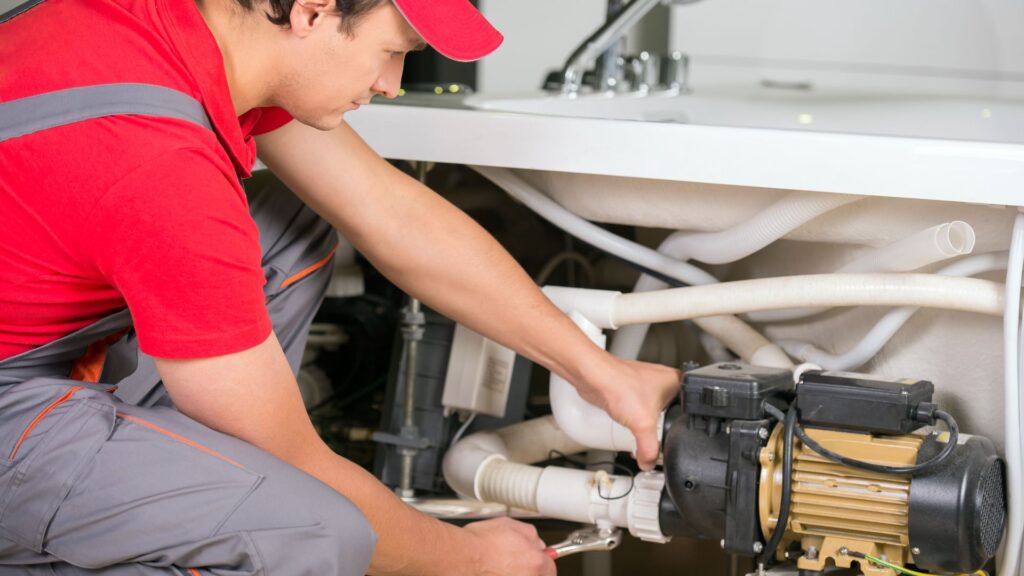
Fixed Rates Vs. Hourly Rates: Which Is Better?
When you’re hiring a plumber in New Zealand, one of the first decisions you’ll face is whether to go with a fixed rate or an hourly rate. Both pricing methods are common across the industry, and understanding the difference between them can help you make a smart choice and avoid surprise costs.
A fixed rate means the plumber provides a set price for the entire job before starting. This is typically offered for straightforward work like installing a tap, replacing a toilet, or fixing a blocked drain. You agree on the full cost up front, and it doesn’t change, even if the job takes longer than expected. On the other hand, an hourly rate means you’re billed for the time the plumber spends on the job. This pricing model is common for more complex or unpredictable work where the total time required can’t be estimated accurately in advance.
Each option has its advantages. With a fixed rate, you know exactly what you’ll pay. There’s no guessing and no worrying about time delays driving up the cost. It’s ideal for budget-conscious homeowners or landlords who need cost certainty. But keep in mind that some plumbers may charge more than the actual time spent to account for risk or possible complications.
An hourly rate can be fairer if the job turns out to be simpler than expected. If a plumber estimates a two-hour job and finishes in one, you save money. But the downside is that the final cost is unpredictable. If the plumber runs into complications, the bill could grow quickly. This approach works best when you trust the plumber and the job has variables that make quoting difficult.
So, when should you ask for a quote, and when is hourly billing better? If the task is routine or has a clear scope, like installing a water filter, replacing a sink, or servicing a hot water cylinder, always request a fixed-price quote. It helps you compare offers and avoid hidden costs. But for jobs involving inspections, leak tracing, or pipe rerouting, hourly billing might be more appropriate because of the unknowns involved.
No matter which pricing model you choose, always get the details in writing. Ask for a written quote or a detailed hourly rate breakdown. This should include what’s covered, any call-out fees, and when the clock starts ticking. Verbal agreements can lead to misunderstandings, especially if extra time or parts are needed.
In short, fixed rates offer peace of mind for simple jobs, while hourly rates offer flexibility for complex ones. Choose the one that fits your situation, and make sure it’s all clearly documented.
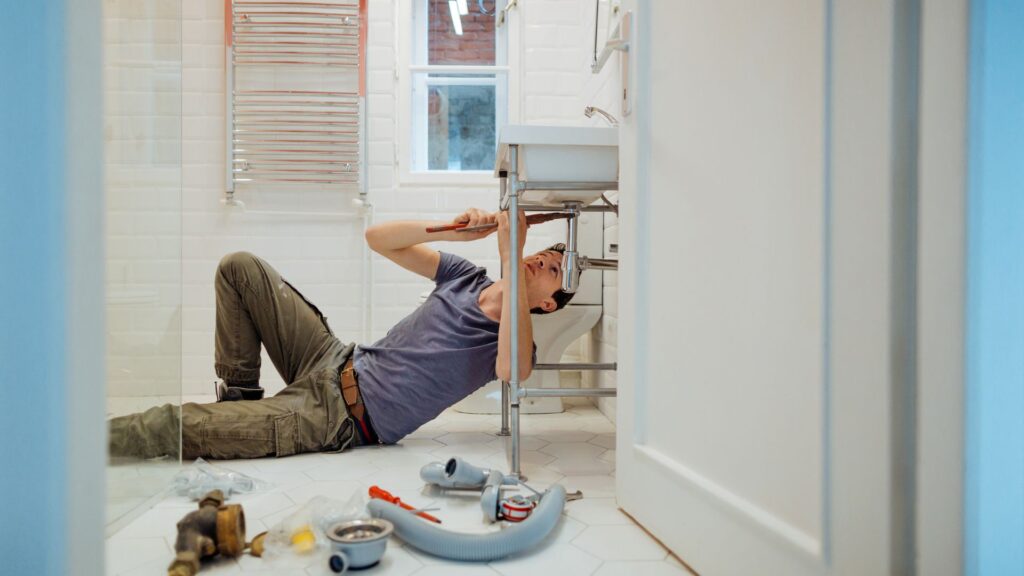
Common Plumbing Jobs And Average Costs In NZ
Plumbing costs in New Zealand can vary depending on the job, location, time of service, and materials needed. Whether you’re planning a renovation or fixing a sudden issue, having a general idea of what to expect helps you budget and avoid surprises. Below is a list of common plumbing jobs and their estimated price ranges. These figures are based on current rates across different NZ regions and are intended to give you a practical starting point when hiring a plumber.
Common Plumbing Services And Their Estimated Costs:
| Job | Estimated Cost |
| Unblocking a toilet | $150–$300 |
| Installing a tap | $100–$200 |
| Hot water system repair | $400–$900 |
| Full bathroom plumbing | $2,000+ |
| Emergency callout | $200–$400 |
Each of these jobs comes with its own level of complexity and time requirements. For instance, unblocking a toilet is usually a straightforward task, but if the blockage is deep in the pipework, it could take longer and cost more. Installing a tap might sound simple, but it depends on the plumbing setup and access. Hot water system repairs range widely depending on the issue, whether it’s a faulty thermostat, a leak, or a complete replacement.
Full bathroom plumbing, which includes running new water lines, fitting fixtures, and ensuring everything meets building code, can be a major job that runs into the thousands. Emergency callouts, especially those outside normal working hours, will always cost more due to urgent response times and after-hours labor.
These are just ballpark figures. Always check with a local plumber for a precise quote. Rates can vary depending on your location, the type of home you live in, and the current demand for services in your area. Getting quotes from multiple providers will help you find a fair price and a plumber you can trust.
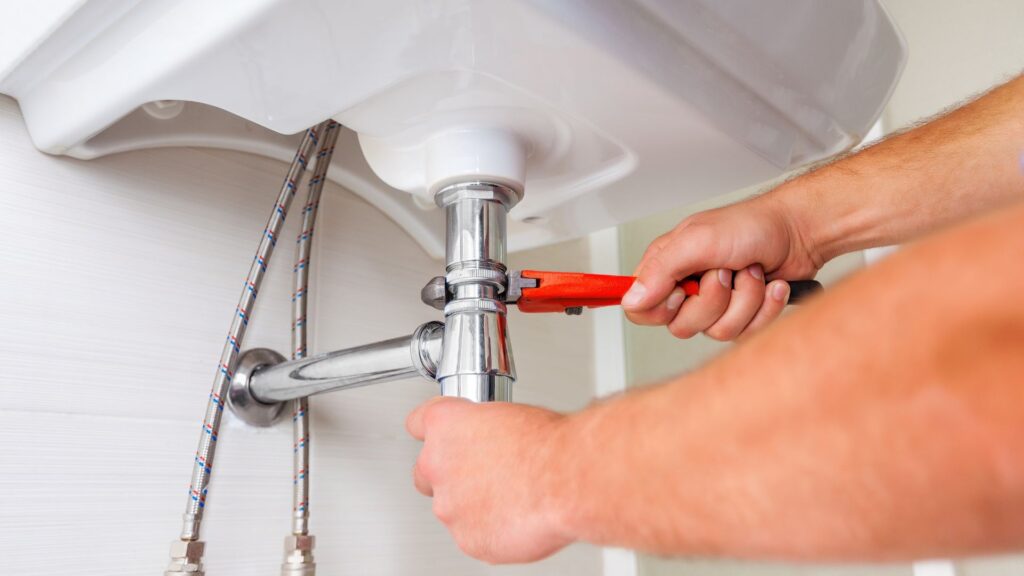
How To Find A Reliable And Fair-Priced Plumber
Finding a trustworthy plumber in New Zealand doesn’t have to be stressful. Whether you’re dealing with a leaking pipe, installing new fixtures, or planning a bathroom renovation, choosing the right professional can save you time, money, and frustration. With so many options available, it’s easy to be tempted by the lowest price, but plumbing is one area where cutting corners often leads to bigger problems. Here’s how to make sure you’re hiring someone who’s skilled, reliable, and reasonably priced.
- Check If They’re Licensed Or Certified
In New Zealand, all plumbers must be registered or licensed by the Plumbers, Gasfitters and Drainlayers Board (PGDB). This certification ensures they meet legal and safety standards. You can check a plumber’s license status online using the PGDB’s public register. Hiring a licensed plumber gives you peace of mind that the work will be completed properly and in compliance with NZ building codes. - Read Local Reviews (Google, NoCowboys)
Don’t just rely on a plumber’s website or social media. Look for independent reviews on platforms like Google and NoCowboys. These reviews often highlight how reliable a plumber is, whether they show up on time, how they handle unexpected problems, and whether past customers were satisfied with the price. Real experiences from real customers give you insight into what you can expect. - Ask About Their Rate Structure Before Booking
Plumbing costs can vary widely depending on the job and the company. Some plumbers charge by the hour, others offer fixed prices. Before booking, ask how they price their work. Do they charge a call-out fee? What’s the hourly rate? Are after-hours fees different? A transparent rate structure helps you avoid surprise costs and ensures you know what you’re agreeing to. - Don’t Fall For Lowest-Price Traps
While it’s smart to compare quotes, be cautious of plumbers offering unusually low rates. Cheap rates might mean shortcuts, unlicensed workers, or poor-quality materials. In many cases, hiring the cheapest plumber ends up costing more when mistakes have to be fixed later. Remember the old saying: “Cheap plumbing isn’t always good plumbing, and bad plumbing isn’t cheap to fix.”
Choosing a plumber should be based on more than just price. Focus on credentials, experience, transparency, and reputation. A reliable plumber not only solves your problem but also gives you confidence that the job’s been done right the first time.
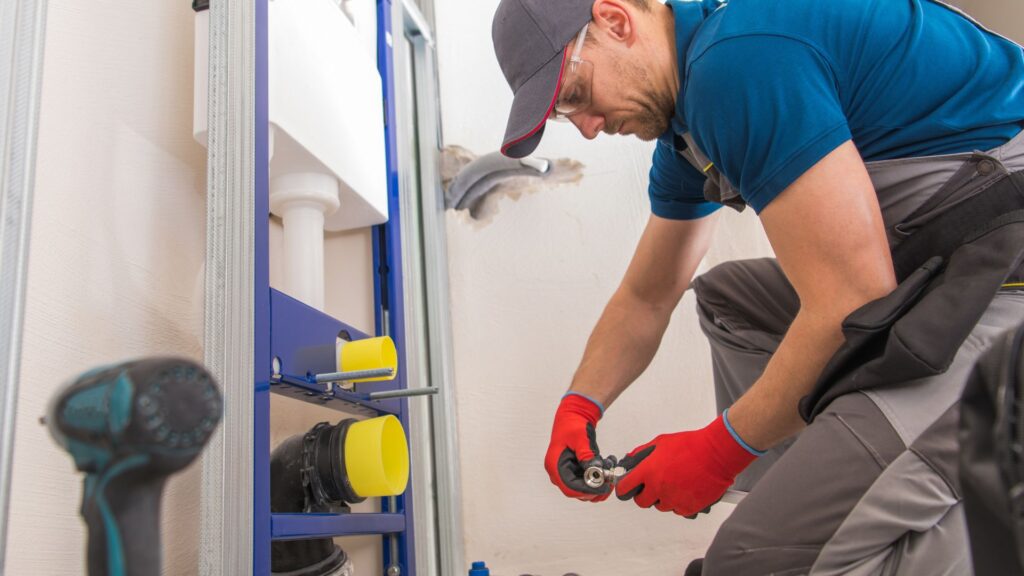
How To Save Money On Plumbing In NZ
Plumbing work can get expensive fast, especially when it’s unexpected. But if you plan ahead and make smart choices, you can reduce costs without cutting corners on quality. Here are practical ways to save money on plumbing in New Zealand while still getting the job done right.
Combine Jobs Into One Visit
If you’ve got a few small plumbing issues, like a leaky tap, slow-draining sink, or a faulty toilet, don’t call the plumber for each one separately. Instead, list them all out and book a single visit. This helps you avoid paying multiple call-out fees and lets the plumber work more efficiently. Most plumbers charge by the hour, so getting more done in one trip gives you better value for your money. It also means fewer disruptions to your daily routine.
Book During Normal Business Hours
After-hours or weekend plumbing services often come with premium charges. Emergency rates can be double the standard hourly fee, especially at night or on public holidays. If the problem isn’t urgent, try to schedule the job during regular weekday hours. You’ll save significantly just by avoiding peak or off-hours pricing. For example, a minor fix at 2 PM on a Tuesday could cost half of what you’d pay for the same job at 10 PM on a Saturday.
Maintain Your Plumbing To Avoid Emergencies
Most costly plumbing jobs happen when things go wrong suddenly, burst pipes, blocked drains, or failed hot water systems. These emergencies are usually preventable with regular maintenance. Clean your drains every few months, fix small leaks early, and don’t ignore warning signs like water stains or unusual noises. Simple habits like not flushing wipes or grease can also prevent major blockages. Preventative care reduces the risk of expensive surprise callouts.
Ask For Fixed-Price Quotes On Big Jobs
For larger plumbing jobs like bathroom renovations or water heater installations, don’t settle for open-ended hourly billing. Ask for a fixed-price quote instead. This gives you a clear idea of what the entire job will cost, with no surprises. It also helps avoid miscommunication and keeps the plumber accountable to the original estimate. Be sure the quote includes materials, labor, and any potential extras like disposal of old parts.
Saving money on plumbing in NZ isn’t about going for the cheapest option, it’s about being smart with how and when you hire a professional. Plan ahead, bundle tasks, stay proactive with maintenance, and always ask for transparent pricing. That way, you’ll keep your home running smoothly without blowing your budget.
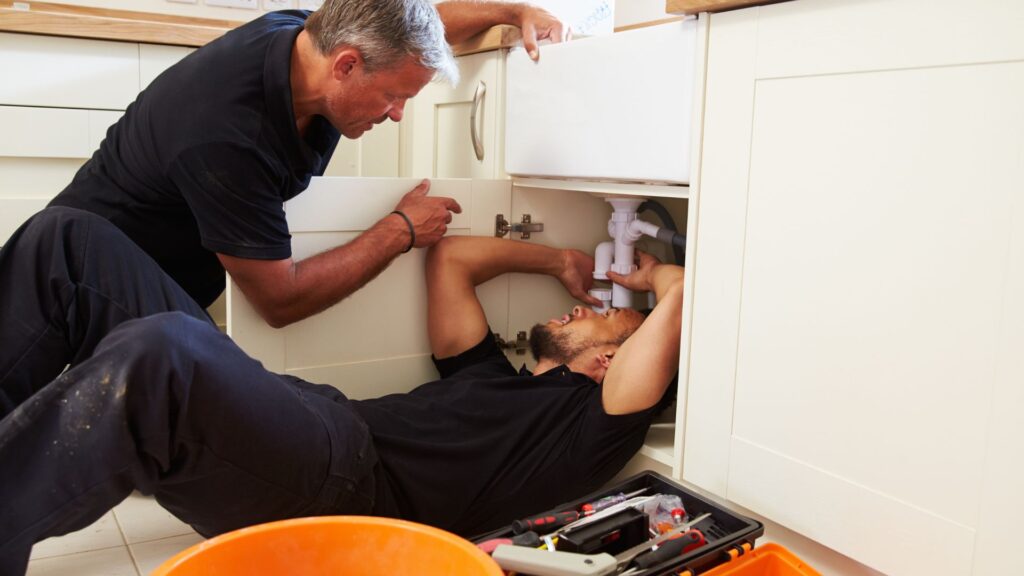
When To Call A Plumber Vs. DIY
Deciding whether to fix a plumbing issue yourself or call a professional can save you money or cost you more if done wrong. In New Zealand, some minor tasks are safe to handle on your own, while others legally require a licensed plumber. Knowing the difference helps you avoid expensive mistakes and keeps your plumbing in good shape.
If you’re dealing with a simple job like replacing a worn-out washer, clearing a minor drain blockage, or tightening a loose tap, these are usually safe for DIY. These basic fixes don’t require advanced tools or technical skills and can be done with a little online guidance. Just make sure to turn off the water supply before you begin.
But when it comes to anything involving your home’s water mains, drainage systems, or hot water cylinders, it’s best to call a licensed plumber. In many cases, New Zealand regulations make it illegal for unqualified individuals to work on these systems. That includes installing new plumbing lines, altering existing pipes, or dealing with any gas or pressure systems. Trying to fix these yourself could result in leaks, water damage, or even legal issues if something goes wrong.
Another reason to call a plumber is when you’re unsure about the cause of a problem. A leak might seem minor, but it could be a sign of something more serious behind the walls or under the floors. A licensed plumber can diagnose the issue accurately and make sure it doesn’t come back. They also carry insurance and can offer guarantees for their work, which gives you peace of mind.
One important thing to remember: DIY mistakes often cost more to fix than the original job. A poorly installed tap, for example, can cause water damage that leads to mould, warped cabinetry, or even structural damage. That’s why if you’re ever in doubt, it’s smarter, and often cheaper in the long run, to bring in a professional.
When you understand which tasks are safe to tackle and which require expert help, you protect both your home and your wallet. Always weigh the risks, check the rules, and don’t be afraid to pick up the phone if the job feels too big.
Need a reliable plumber at a fair rate? Visit us to book a trusted local expert near you.
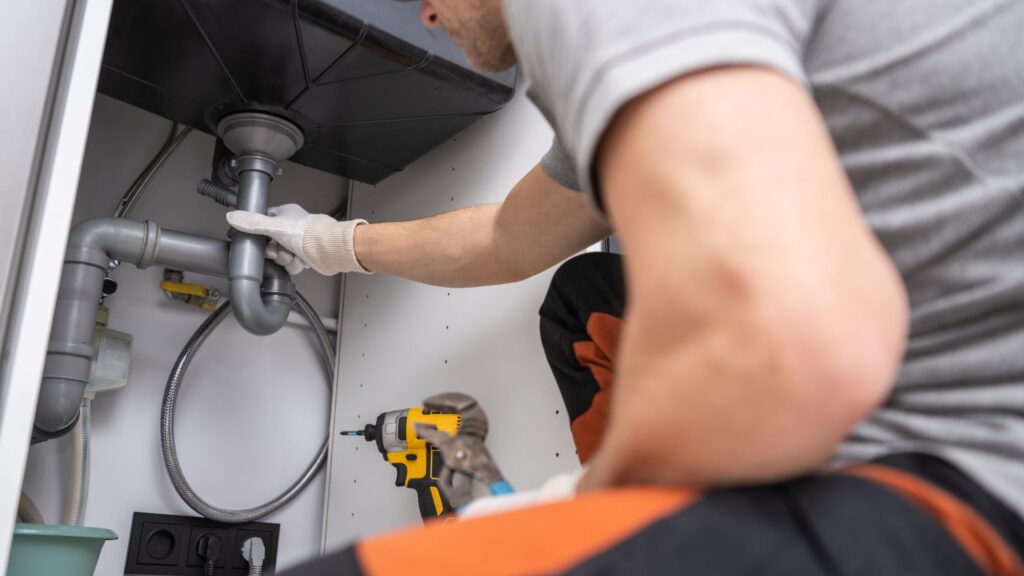
FAQs: About Plumbing Rates In NZ
What is the average hourly rate for a plumber in New Zealand?
Most plumbers in New Zealand charge between $90 and $130 per hour during normal business hours. Emergency services usually cost more, often between $150 and $250 per hour.
Do plumbers charge a call-out fee in NZ?
Yes, many plumbers charge a call-out fee, which typically ranges from $60 to $100. This is often added on top of the hourly rate, especially for short jobs.
Are plumbing rates the same across all NZ regions?
No, plumbing rates vary by region. For example, rates in Auckland and Wellington are usually higher than in smaller towns or rural areas due to demand and cost of living.
How much does it cost to unblock a toilet in NZ?
Unblocking a toilet can cost anywhere from $150 to $300, depending on the severity of the blockage and how long it takes to fix.
Can I get a fixed price instead of paying hourly?
Yes, many plumbers offer fixed-price quotes for common jobs like tap replacements or hot water cylinder installations. Always ask before the job starts.
What factors affect plumbing prices in NZ?
Key factors include the type of job, time of day, materials used, the plumber’s experience, and your location. Emergency and after-hours work costs more.
Are emergency plumbing services more expensive?
Yes, emergency callouts after hours or on weekends usually carry higher rates, often between $150 and $250 per hour or more.
Is it cheaper to hire an apprentice plumber?
Apprentice plumbers typically charge less, but they may be limited in what they can do without supervision. For complex work, a licensed plumber is recommended.
Can I do small plumbing jobs myself?
You can do basic tasks like changing washers or clearing simple clogs. For anything involving water mains, gas, or structural changes, hire a licensed plumber.
How can I avoid overpaying for plumbing services?
Get at least two quotes, ask for pricing upfront, avoid emergency calls when possible, and combine multiple small jobs into one visit to reduce overall cost.
Conclusion
Plumbing rates in NZ can vary widely depending on the type of job, location, and timing, but with a bit of smart planning, you can avoid unexpected costs and stay within budget. Whether you’re booking a quick fix or a full installation, taking the time to compare rates and understand what you’re paying for makes a big difference. Always ask for a detailed quote before agreeing to any service, and don’t hesitate to get at least two or three estimates from different providers to ensure you’re getting fair value. If you’re unsure about anything or want to share your own experience with hiring a plumber in New Zealand, feel free to drop your thoughts or questions in the comments. We’re here to help.
About the Author:
Mike Veail is a recognized digital marketing expert with over 6 years of experience in helping tradespeople and small businesses thrive online. A former quantity surveyor, Mike combines deep industry knowledge with hands-on expertise in SEO and Google Ads. His marketing strategies are tailored to the specific needs of the trades sector, helping businesses increase visibility and generate more leads through proven, ethical methods.
Mike has successfully partnered with numerous companies, establishing a track record of delivering measurable results. His work has been featured across various platforms that showcase his expertise in lead generation and online marketing for the trades sector.
Learn more about Mike's experience and services at https://theleadguy.online or follow him on social media:

